Coincidentally with the Illinois Dept. of Resources' desperate (and probably too-late) effort to stop Asian carp from getting into the Great Lakes comes another tragically predictable outcome of local politics. The Mayor of Chicago this week forced a budget through the City Council over an unusually-high 12 dissenting votes that raids the paltry parking meter trust fund only a year after the (allegedly) corrupt and (actually) stupid decision exactly a year ago to sell the streets of Chicago:
As has become customary, aldermen bitched and moaned about Mayor Daley’s $6.1 billion budget before they passed it today. Nobody claimed to like it, though 38 aldermen voted in favor of it. But that number is smaller than it has been for most of Daley's reign. In years past the mayor viewed a single nay vote as an intolerable act of defiance; these days he’s lucky no one else has the clout to wield or goodies to hand out that he does, because his governing style is wearing thinner among an ever larger group of aldermen. As in a dozen.
Still, their arguments are getting more pointed. For evidence, consider the diatribe that 38th Ward alderman Tom Allen delivered to explain why he was casting his first vote against a Daley budget since the mayor appointed him to the City Council in 1993. “I have come to the conclusion that this 2010 budget is one that I have no confidence in,” Allen said.
He offered three reasons. “First and foremost,” he said, “the parking meter spending plan here I consider to be a breach of our fiduciary duties to the taxpayers that we represent.” Allen produced materials that Daley budget aides had distributed to aldermen a year ago when they rammed the 75-year parking meter privatization deal through the council in four days. He said aldermen were promised that the administration would save enough of the proceeds that the interest on them would equal or exceed the $20 million the city was accustomed to collecting from the meters. Instead, Daley’s budget will burn through two-thirds of the replacement fund in a single year.
The pattern should be familiar to students of 20th-century history. As they grow older, leaders become more concerned with their legacies than their constituents. The trend accelerates, until, near the end of their political careers, they almost inevitably experience epic failure. In the case of fairly-elected leaders in functioning democracies, the results are merely disappointing: Clinton, Nixon, and Gray Davis come to mind. But in the case of one-party states, where the leaders have no functioning or effective opposition, the outcome often destroys the polis as it destroys the leader: Mugabe, Cheney, and recently the mayors of Baltimore and Detroit.
I don't know which hypothesis I prefer: that Daley doesn't actually believe his actions will prove beneficial to the city in the long run, so he's feathering his nest before retiring; or that Daley, after 17 years without tolerating any criticism or dissent, has gotten so deluded he really thinks these decisions are good. Of course, without an effective challenger—where's Harold Washington when we need him most?—we're stuck with Daley Sese Seku until he chooses to leave office.
During the few months I lived in Vermont, Bill Clinton got elected President. He spoke at one big rally that year, up in Burlington, and thanks to a press pass from a friend at a radio station, I got to see him in person:

I think you can see the Secret Service agent pushing me away in this shot, though Clinton himself couldn't get enough of the rope line:
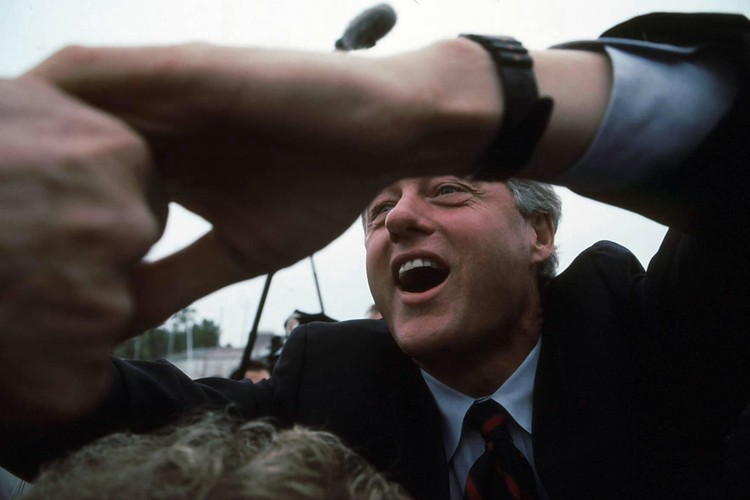
Then-Vermont-governor Howard Dean was there too:
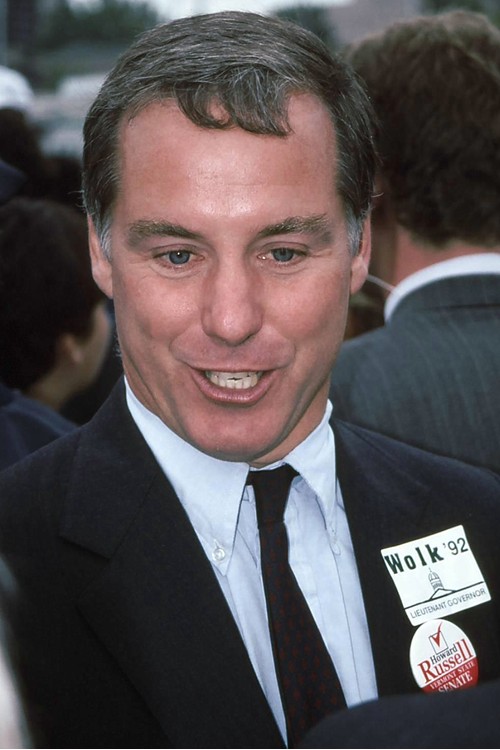
Few people knew before, you know, this blog entry, that I lived in Vermont for a few months in 1992. (I was young, I needed the work.) Actually, it was the most beautiful place I've lived. That said, I grew up in one big city and went to college in another, so the things that made Vermont beautiful were precisely those things that made it difficult for me to live there: wide open spaces, trees, idyllic rural living, etc.
I moved back to Chicago in short order, but not after taking a few hundred photos. These, for example, I took in Middlebury, where I lived at the time:
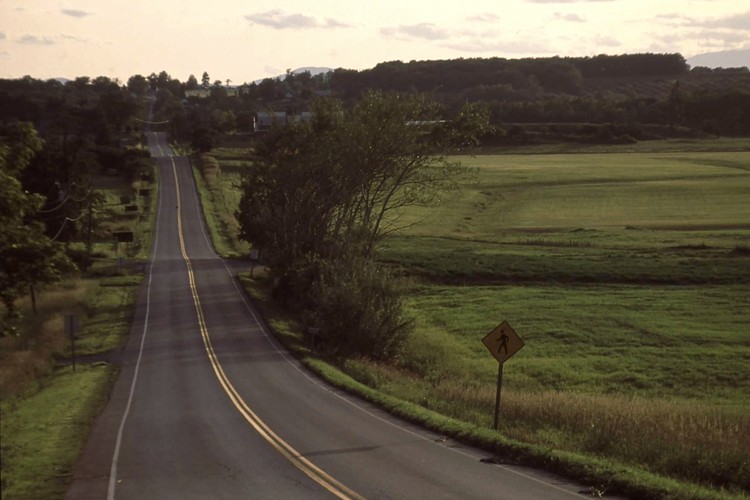
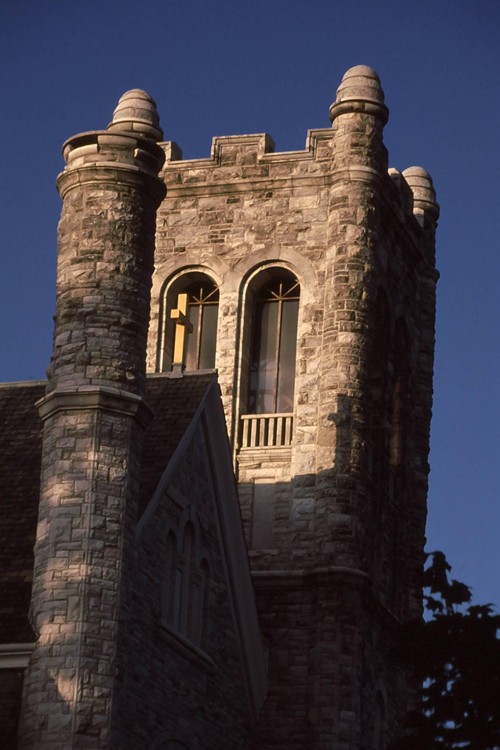
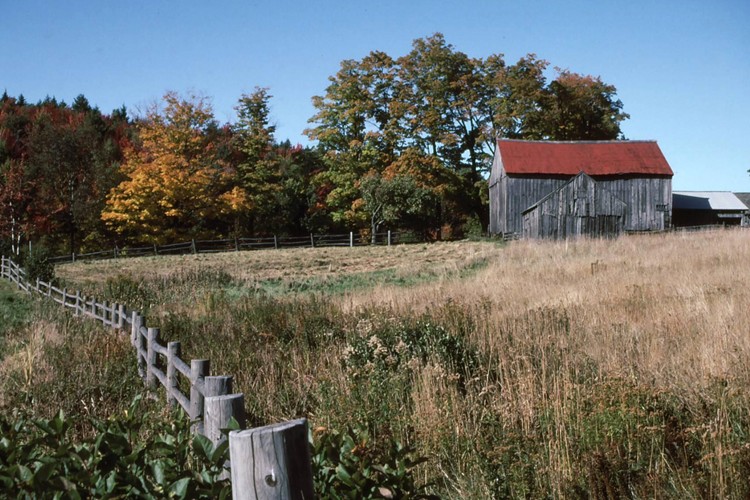
The first two are from July 1992; the last one, from September, in southern Vermont, near where my friend Renee lived at the time.
I went back to Middlebury in May 2006. It looked almost exactly the same, except I had a digital camera with me instead of one that took expensive slides. Unfortunately it was rainy and gray in 2006, so these photos from 1992 turned out much better.
More photos from 1992. Taking the Kyle of Lochalsh train from Inverness through the Scottish highlands capped the trip. I took three rolls of film in as many hours. (We didn't have digital cameras back then, so each photo, with processing, cost about 35c—the equivalent of about 70c today—so those three rolls represent about $75 of today's dollars.)
Here are three of those shots, from 24 June 1992:
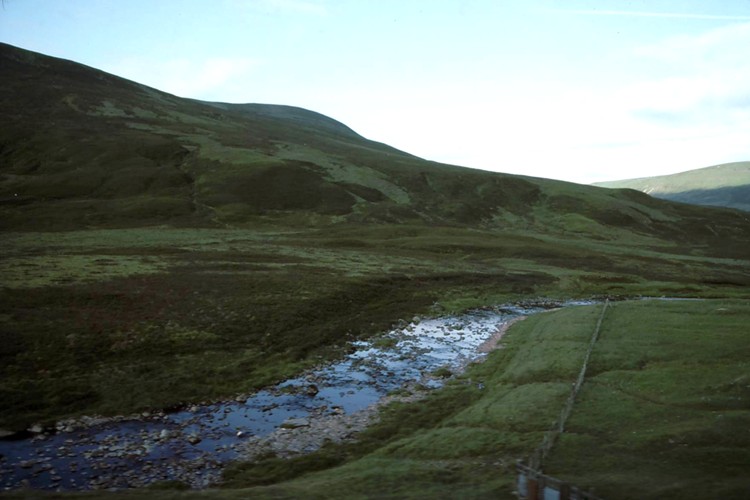
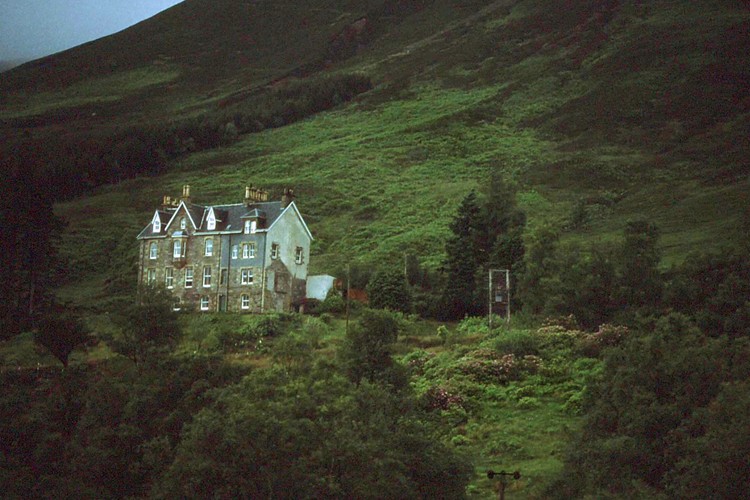
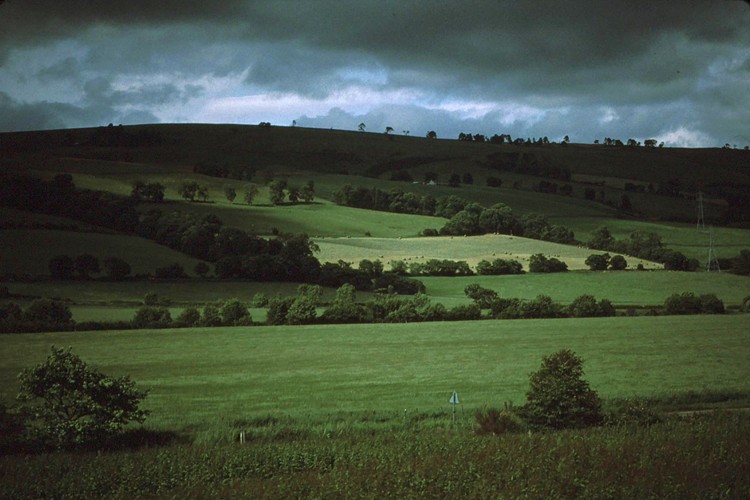
Note, please, that I have licensed some of my work as stock photos, and I would like to do so again. So even though generally this blog is licensed as a Creative Commons Attribution-Noncommercial-No Derivative Works 3.0 United States work, photographs are not, and have never been, CC-licensed. Only the text is covered by the CC license. Photos are, and always have been, Copyright © David Braverman, all rights reserved, from the point of creation.
After detecting Asian carp DNA only 10 km from Lake Michigan, the Illinois Dept. of Resources last night started killing everything in the Sanitary and Ship Canal that runs through the city:
About 8,300 liters of the liquid toxin rotenone were put into a 6-mile stretch of the canal near Romeoville Wednesday night.
More than a dozen boats were to go on the canal later today to begin cleanup operations....
The toxin was put into the water because fears that the carp--which can grow to about 150 cm and 50 kg--are pushing their way north toward Lake Michigan and could devastate the Great Lakes' $7 billion commercial fishing industry. The carp can eat 40 percent of their body weight each day.
Apparently they don't taste too good, either.
Since the Canal runs backwards, thanks to an engineering trick in 1901 that stopped us poisoning our drinking water (and started us poisoning Peoria's), the carp may not make it all the way to the lake. Except for that jumping thing they do, when they launch themselves in the air the same way pigs don't, and have occasionally cleared 20 meters.
The trip I took in 1992 went from West Sussex, England, to Nice, France; Genève, Switzerland; Strasbourg, France; then back to the U.K. As I continue the (excruciatingly slow) process of scanning all these slides, I'll continue to post the better ones. Like these, the first from Nice:
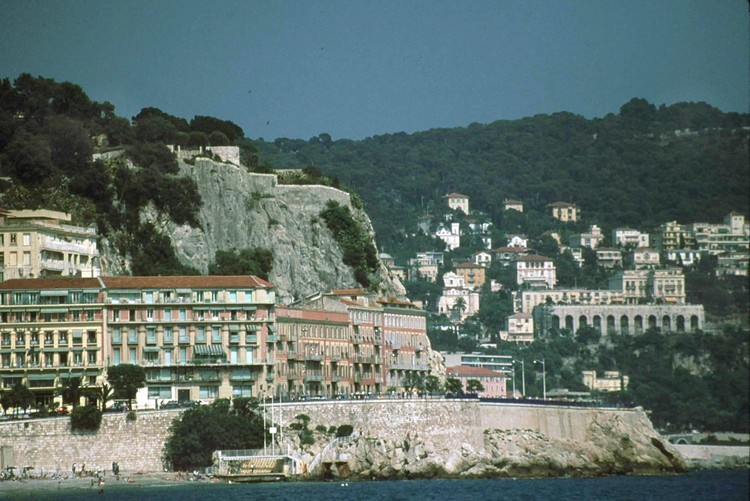
And Strasbourg:
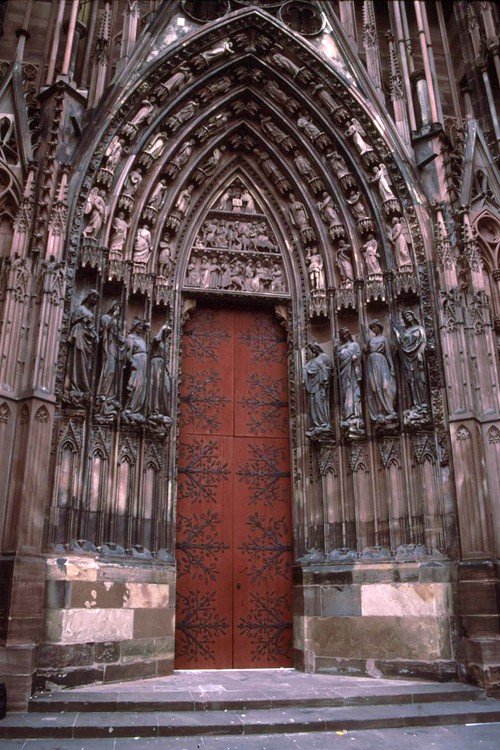
Like many Americans, I backpacked through Europe right after graduating from college, in the summer of 1992. I've been scanning all of my slides, gradually, for a couple of years in fact, and I'm now up to that Europe trip. (The trip starts on slide #2362, and I'm just today up to slide #2500.)
Here are two. First, Chichester Cathedral, England:

Then, from Rolle, Switzerland:
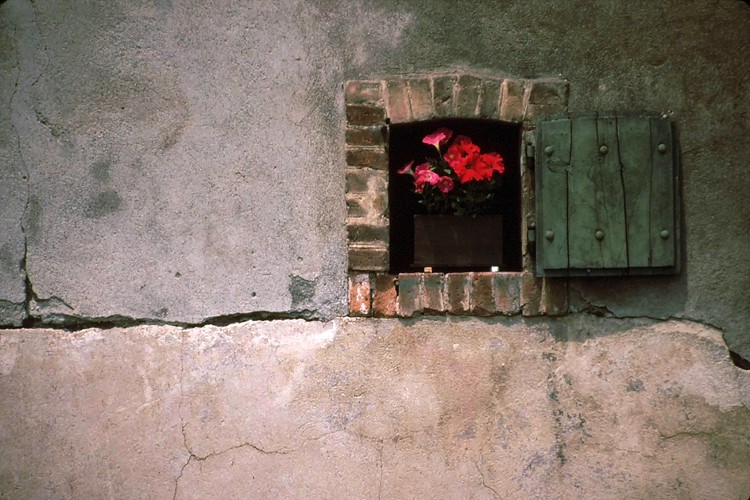
I'm glad I took slides—almost all of them on Kodachrome 64. Some of the earliest photos still have perfect color and grain, 27 years later. I hope they all last another century. If not, at least I've got a huge chunk of them scanned. Then there are the 180 rolls of negatives...but that project is a long way off.
Just a few quick things today:
- The temperature hit 13°C today, not a record but definitely a pleasant day in December. In Chicago. Because, of course, there are parts of the world where that temperature on any day of the year would cause alarm.
- Matthew Yglesias thinks mutual funds are stupid. I'm linking because of his two clear charts. His recommendations: index funds. (But...is any of this news?)
- The local pizza place around the corner folded last week. This was Parker's favorite summer hangout. We'll miss it.
- Comcast and AT&T are fighting public broadband in areas that don't have it. Common sense suggests that the government subsidy would ultimately go to them, but their first reaction is that of any monopolist. As Duke University economist Leslie Marx put it only yesterday, "remember that everywhere a firm looks, it is obligated to look for profits, and I would challenge anyone to show me an industry where the suppression of rivalry is not profitable."
More later. Possibly a Parker photo, too.
Chicago has had the longest streak of above-normal daily temperatures in any November since records have been kept:
The last day of November will see Chicago's 27th record-setting consecutive day with above-normal temperatures. Warmer readings are likely Tuesday as southwesterly winds and abundant sunshine allow afternoon high temperatures to approach and even exceed 50 degrees at many observation points around the metro area. A cold front should pass through Chicago early Wednesday, followed by a sudden turn to colder weather with falling temperatures.
In practice, this means that November felt like October, which, because of the 20 days of below-normal temperatures that month, felt like November. The forecast calls for a normal December, and who-knows-what in 2010.
Tomorrow we look forward to the correction: after the day's high of 11°C at midnight, a slow slide to -2°C before the snow pushes in on Wednesday. Yummy.
Why it's important to get your scanner settings correct:
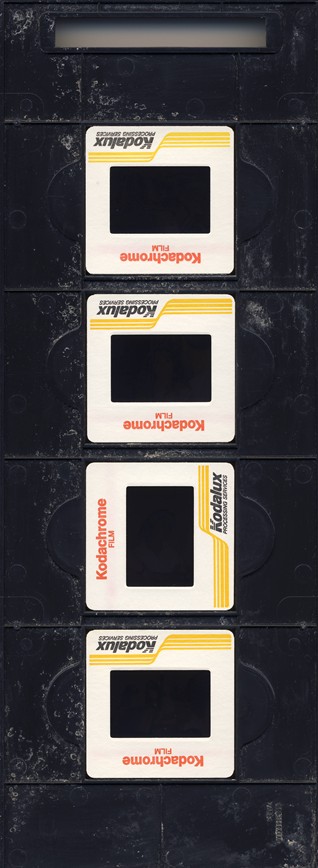
Duh. Film setting, dude. Film setting.